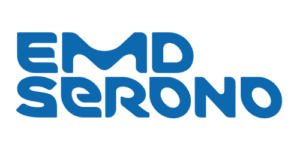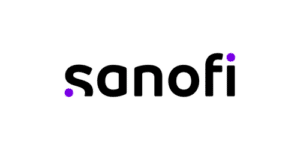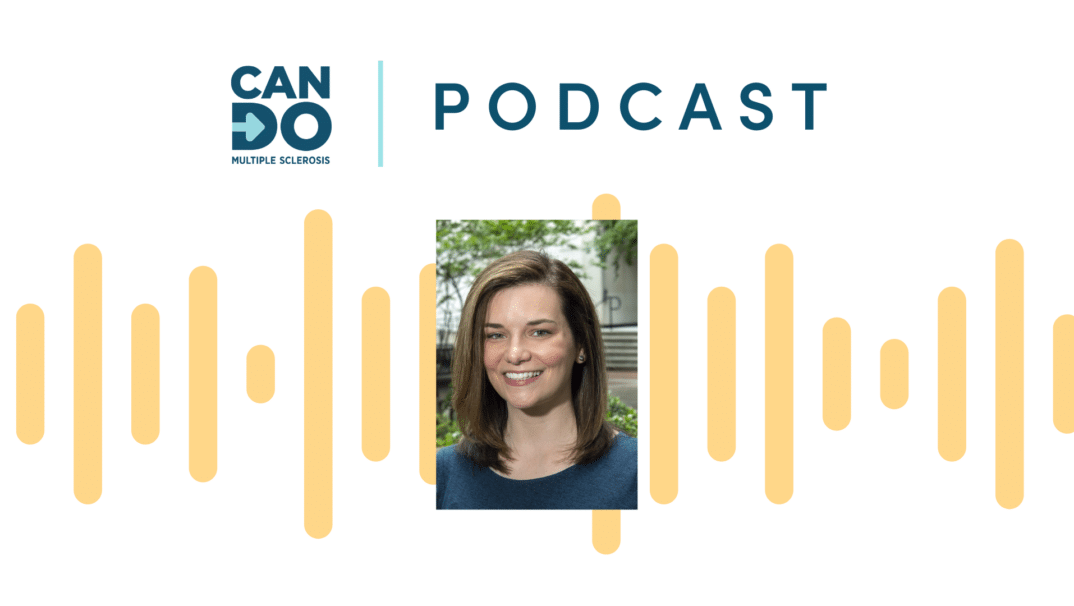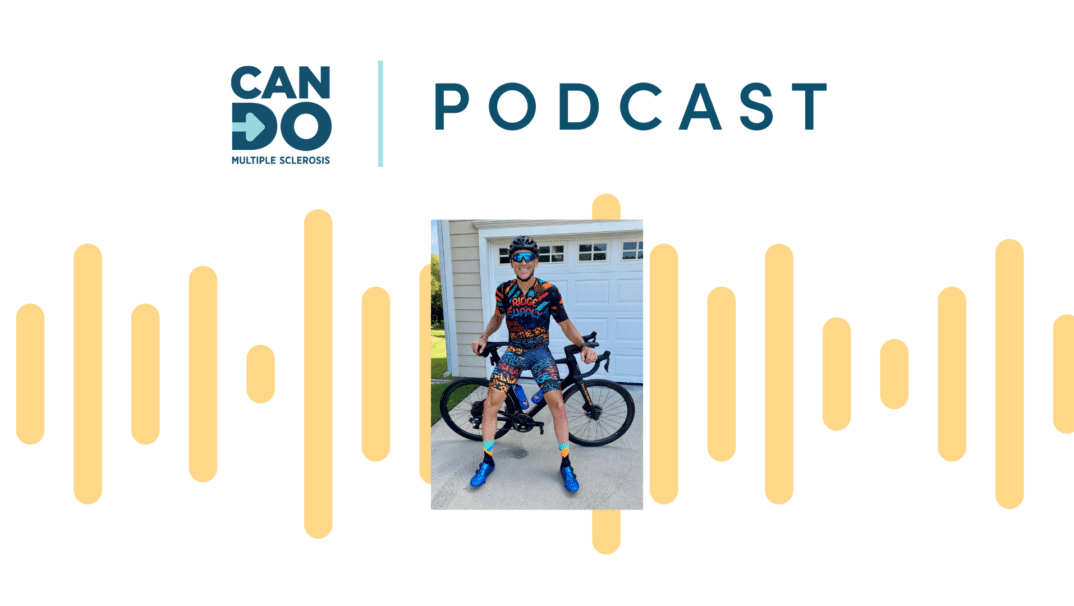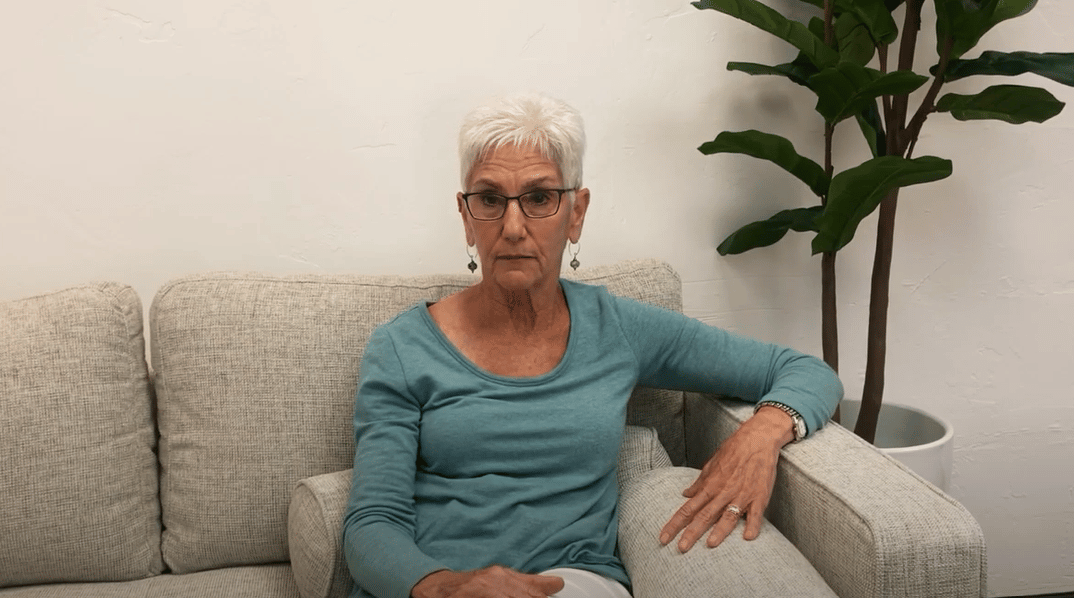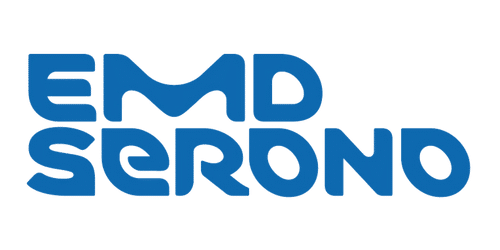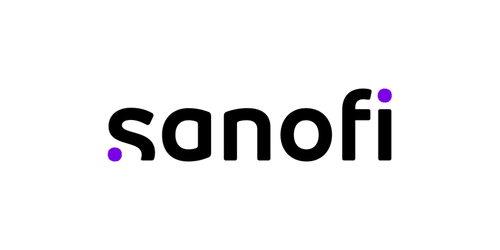Meet the Host: Stephanie Buxhoeveden
Finding Adventure and Healing with First Descents MS Programs
15 Jun 2022 | ~25:06 Engagement Time
Podcast Recording
Overview
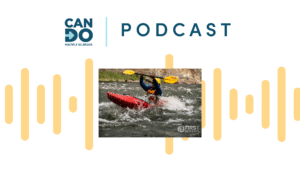
Have you ever noticed how it feels to breathe in the fresh air when you step outside? Or how your soul is ignited by an adrenaline rush? The great outdoors offer serene escapes and exciting adventures that can bring healing to the mind, body, and spirit. In episode #70 , learn about First Descents, an amazing nonprofit and partner of Can Do MS that delivers outdoor adventure programs to young adults with MS and other illnesses. Our guests are First Descents Vice President of Programs Mackenzie McGrath and program participant Tiffany-Ashton Gatsby. Hear their inspiring stories and learn how experiences like white-water kayaking can bring about the peer support, empowerment, and self-discovery that truly leads to healing.
Learn more about First Descents:
MS Programs: Check out their MS Programs!
Contact First Descents: Email programs@firstdescents.org to learn more!
Transcript
Finding Adventure and Healing with First Descents MS Programs
Episode 70
[background music]
[(0:11)] Samantha: Welcome to the Can Do MS Podcast. I’m Dr. Samantha Balistreri and I’ll be your host. Today’s podcast is episode number 70, and I have 2 guests here to speak with me and share more about another awesome nonprofit in the MS community that is First Descents. During this conversation, you may hear us refer to First Descents as FD. I’m happy to welcome Mackenzie McGrath who is the VP of Programs at First Descents. Along with MacKenzie, we have Tiffany-Ashton Gatsby joining us. Tiffany participated in the very first program that FD offered for people with MS.
So Mackenzie, we have to talk about this first. I hear that all your staffs and participants have fun nicknames in your programs. I understand you go by Spuds and Tiffany-Ashton goes by Spirit Wolf. Can you tell us more about that?
[(1:02)] Mackenzie: Yeah, the nickname tradition happens at every overnight program, um, and gives each and every participant a chance to step out of their normal life routine, fear, or diagnosis, and allows them to just step into the experiences, a new… you know, new individual not previously defined by what they might be bringing to the program.
[(1:27)] Samantha: That’s very cool, and a wonderful way to allow your participants to dive into your programs fully. So Spuds, tell us a little bit about First Descents.
[(1:36)] Mackenzie: Yeah, um, First Descents provides life-changing outdoor adventures for young adults, ages eighteen to thirty-nine, impacted by cancer and other serious health conditions including MS. Um, we were founded over 20 years ago in the Vail Valley, uh, by a former pro kayaker, Brad Ludden, um, and what started with one kayaking program in the Vail Valley has now, um, evolved to hundreds of programs nationwide, um, for a wide group of young adults fa-facing various life-altering health conditions, from cancer to MS, as well as caregivers, um, of the oncology community.
Hopefully, we’re building a base to serve, um, caregivers of the MS community too, that’s a real interest of ours. We just don’t have enough, uh, uh, folks yet who are, uh,… t-to, to put a program of that sort on, but eventually well. Um, and then in response to the pandemic, uh, we did start serving healthcare workers on the frontlines of COVID-19 relief efforts.
[(2:48)] Samantha: Wonderful.
[(2:50)] Mackenzie: Yeah.
[(2:50)] Samantha: Um, so kayaking is a big program, but what else do you offer?
[(2:54)] Mackenzie: Yeah, we offer whitewater kayakin’, rock climbin’, ice climbin’, and surfing. So those are the predominant sports that we focus on and, um, our programs are a lot more than just outdoor adventure, um, although the main focal point and the backdrop is, um, you know, adventuring in wild places with peers. And there are other components that we bring into the programs, um, like nutrition, um, mindfulness, yoga, et cetera, but I would say the main, you know, a-area of focus and, and what we really emphasize is peer… peer-to-peer support and outdoor adventure through some set activity that I shared with you, whether it’s whitewater kayakin’ or climbin’.
[(3:43)] Samantha: That’s great. And if we’re just looking at your programs in a… for multiple sclerosis, how, um, does First Descents help mitigate and manage symptoms at a program?
[(3:53)] Mackenzie: Yeah, that’s a really great question. Um, we have… Well, it, it starts well before the program starts at South. So we have a team here at First Descents HQ, our programs’ team, that works with, um, any applicants on an individual basis.
And we have a, an-, medical application where we collect a lot of information about, um, folks’ symptoms, potential triggers specific to MS, but then a g-… a general medical background so that our team is, is best prepared to meet the needs of the applicant as much as possible. Um, so, a number of things that we tend to see from our MS applicants is a history of, um, fatigue, um, issues with temperature regulation, spasticity, numbness, tingling. Um, and w-what we do is, once we receive this application, we have also a team of medical reviewers, they’re all licensed medical professionals, that review the application and try to put the person in the best program that is most appropriate for them, um, based on what they tell us.
So, you know, transparency and honesty on the application is, is, um, not gonna, um, inhibit people from going out with us. It’s just gonna better allow us to meet their particular needs. So, we will do anything, um, at programs from, like, providing, um, cooling vest which is quite typical for us for individuals that might have issues with temperature regulation, um, a lot of focus on hydration, um, a lot of downtime, built-in rests and breaks, and then also working with our partners to have as much shading as possible.
Because a lot of the activities that we’re doing, w-we know, you know, if we’re out on the river and we’re whitewater kayakin’, like, you’re probably not gonna be able to kayak with an umbrella over you the entire time. So we’re pulling over, we’re taking breaks in the shade, or we have a support raft that’s following that does have shading if somebody needs to, to take a break and get out of the sun for a bit. So we do a number of things. But we really do taylor it based on, um, applicants needs and, and, and try to use a real individualized approach.
[(6:15)] Samantha: Yeah, sounds like a lot of thought and consideration goes into each program to make sure everyone’s comfortable and safe. If you had to pick one thing, what would you say is the most powerful part of an FD program?
[(6:28)] Mackenzie: Oh, man, there’s so many powerful parts of it. Um, I would say probably the last day, um, and that is graduation day and it’s really what we’re trying to do is with, with these, uh, participants that come out, it’s a-always a small group environment.
Our programs are about twelve to fifteen participants. So we’re really focused on small intimate, um, groups. So there isn’t an overwhelmin’ amount of people, um, and people can really get to know one another.
And we move folks through a progression. I’ll use whitewater kayakin’ as an example, where they’re learning to paddle the first couple of days, or learning to wet eggs, which is, safely get out of their boat if they flip. And then, we’re… they’re learnin’ to move through rapids and then eventually, on the last day, they go through a graduation rapid, or for climbin’, it’s a graduation climb where it’s a bit more challenging, and they’re doing it on their own.
But they’re doin’ it within the company and the safety of a trained, um, group of staff and guides. So safety is number one. Um, but it really allows, um, participants to see how far they’ve come and to apply the skills that they’ve learned over the course of a-an entire program and whether somebody doe-, you know, flips in a rapid or they make it all the way down, it’s a really, really impactful experience, and it’s really just about each person having their own individual journey but also doing it in the company, um, and feeling supported by others.
[(8:12)] Samantha: Yeah. That must be special to see from your perspective, but also a really special moment for each participant to see how far they’ve come in your program.
[(8:20)] Mackenzie: Yeah, it’s remarkable. It’s a really incredible thing t-to be a part of.
[(8:25)] Samantha: Well, Tiffany, you would have actually participated in an FD program. So I’m looking forward to hearing about your perspective. Um, so how did you find and first connect with First Descents?
[(8:36)] Tiffany: Um, I got an email from one of my health care providers, um, MS groups, that sends out, like, random, um, information for people with MS. And there was just this little blurb that said, you know, “Outdoor adventure, kayaking, something for people with MS.” And it was, like, free of charge, like, and I was, like, “Oh, that sounds fun.” I didn’t really know exactly what it was, and I just thought it was something that sounded outdoorsy and wasn’t gonna cost me anything and was for people with MS.
So I filled out an application, didn’t really have any expectations or know what I was getting into at all. So it was just, kind of, wingin’ it and, uh, I believe I was pretty last minute. I only applied just a few weeks before the program start date, so I didn’t really have a chance to, like, psych myself out, or really even think about it. I was like, “Oh, I wanna go on the same. Sure.”
[(9:39)] Samantha: So, going into your first adventure, you-, were you nervous? Were you excited?
[(9:44)] Tiffany: I mean, honestly, I… I was just, kind of, open for anything. I wasn’t really nervous cuz I didn’t know what I was getting myself into. I mean, I think if I would have had more information upfront, I might have been a lot more nervous, but I figured, you know, for a bunch of people with MS, like, what are they gonna have us do?
I figured we were gonna paddle around on a lake, you know, lazily kayaking for a few days. Um, I didn’t really know that it was gonna be a strenuous, um, whitewater kayaking program that was actually gonna challenge, uh, me in so many ways. So, I mean, I just knew that it was the pilot program, we’re the first ones, so we were, kinda, you know, guinea pigging it for the, the group of MS folks. And I was like, “Okay, let’s, like, let’s go out there and see what happens.”
[(10:37)] Samantha: So you’ve been a part of 2 FD programs. The first, you did whitewater rafting. Will you talk a little bit more about that one and then share your second FD experience?
[(10:47)] Tiffany: Sure. Yeah, the first program was, like I mentioned, it was the pilot program for folks with MS, and there were fourteen of us. We were in Montana, on the Tarkio river, um, which was, uh, just outside of Missoula.
Um, when I got off the plane, um, a-a-a couple of folks with, uh, some tutus and, uh, poop emoji hats [chuckles] were greeting us at the airport and quickly told us not to, um… not to use our real names, and we were waiting around, kind of very confused. I think a lot of us didn’t… we w-, definitely weren’t expecting that kind of a greeting, and then we’re told we had to come up with nicknames and not to introduce ourselves which is, kind of, how th-the whole start to th-the FD nickname and my Spirit Wolf journey began.
Um, so yeah, there were fourteen, uh, fourteen of us sharing, uh, living quarters and, like, cabin on the river. It was a gorgeous cabin, and it really felt like summer camp. I mean, it was… you know, a bunch of us, kind o-, kind of, piling in and sharing that intimate space with each other. The difference was, we were all really bonded through that experience of having MS. And for most of us, none of us had really been in a group of people with the diagnosis, especially for that extended period of time.
I mean, a support group situation is completely different from those because you’re immersed, uh, in this living environment. So you can actually get to know people on a different, more intimate level. Plus, you’re also going through a challenge with with,uh, with each other where you’re challenging yourself mentally, emotionally, physically, um, so i-it, it was quite different in that sense.
Um, also, the FD crew were extremely welcoming. I mean, we came in, they’re like, “Don’t worry about your luggage. We got this for you. Sit down. Can we bring you coffee?” And I-I was never expecting that sort of welcome. Usually, um, being around people that are not, um… that are not… also a-, people with disabilities, you know, you’re kind of always the one in the background trying to catch up. And we were just told to kick back and relax and that it was about us 100%. And we were there to, like, have a really good time and in full experience.
So, yeah, we started out on the river. [chuckles] First day, had to get flipped upside down [chuckle] in the kayak. Um, I don’t… Like, a lot of us didn’t know we were doing whitewater kayaking, some of us did, but we were like, “Wait, what? We have to do, what?” So, yeah, that was kind of like, I don’t know, tr-, I was gonna say trial by fire, but it was more like trial, trial by water dowsing. Um, and I’d say, one of the best things about that initial day was just, there were so many people around us, supporting us for safety. That made me feel extremely comfortable. I mean, that was one of the main reasons I even went on the trip in the first place is because I was told that there was gonna be medical professionals, uh, there for safety.
Um, so there were world-class kayakers surrounding us, teaching us how to do everything and somebody could get to you within 30 seconds if anything went wrong which, I think, especially for people with MS, there’s that, that hesitancy, uh, to do new things, or to do things that you haven’t, um, had a chance to experience because what if something happens, what if something goes wrong.
And the FD crew didn’t allow anything to happen to us. They protected us. So thoroughly, um, I just… I felt so safe, and it’s definitely nothing I ever would have dared to do on my own. I mean, I’m not gonna go to the middle of a river in Montana, getting a… getting a kayak and be like, “Oh, yeah, I got this,” but I-I knew I was… I knew I was gonna have a safe experience. Whether it was a good time or not, I knew I was safe, so…
[(14:51)] Samantha: Yeah, that’s really important. Sounds like First Descents was prepared to handle almost any situation to make sure you felt included and safe.
[(14:58)] Tiffany: Yeah. The second experience was, um, me and another participant, Birdie. We were invited back. So it’s still kayaking and was still in Montana with just a different spot. I actually ended up having an MS flare during that program. And… I-I mean, I was experienced kayaker. I’m doing air quotes [laughs], um, because I had gone through the program before, but I struggled and it was, um… I think it was good for, for the people, um, to see that, “Hey, you know, you can end up running into some big roadblocks and still be supported and still have a good time.”
I was having some spasticity and had to get pulled from my kayak. Um, people were right there to help me. Um, I got put on the… on the white water raft for the day and was under a nice little shade and got to hang out with the camera crew, um, and still got to participate. So it was great that despite having, you know, a flare and was in the middle of, you know, some crazy, like, you know, spasticity and things that just prevented me from fully participating, I could still be there, and I could still not feel like I was getting left out, and I think that was probably one of the most, I mean, h-, like, just it touched my heart because usually, when things like that happen out in the world, you know, you get left behind, you have to stay home.
Um, but the FD crew was really there for me, uh, making sure I was still very much included, and still gonna have my little… my little graduation. I’m just a little bit different that that series, but, uh, it was just as fulfilling, and I wouldn’t take it back in a million years, even that little flare.
[(16:48)] Samantha: [chuckles] Now, that’s, that’s really, really special. So now that you can look back on who you were before your experiences with FD and compare it to who you are now, how would you say you’re different?
[(16:58)] Tiffany: Uh, honestly, the FD experience really had a profound impact on, uh, my life, my… the way I view having MS, um, just knowing what I can do if I really set my mind to it. Um, I had just started going back to college that year that I went on the MS, uh… that FD program. And I had never really been in a group like that.
I’ve made, um, connections with those folks there that I-… we still talk, you know, 4, 5 years later, um, 4 years later. Um, those are some meaningful relationships that, uh, I was able to develop, that I-I never would have had a chance to encounter. Um, you know, we shared some of our deepest, darkest fears and insecurities, uh, through this journey, and, um, I’m actually starting a PhD program in the fall and part of the research that I’m doing, um… the direction that set, um, set that into motion was really ticked off by this, this FD program, just the idea that there can be healing, um, achieved through things that are not within the realms of traditional medicine and that emotional healing, that bonding, that experience, um, can be just as important, if not more so than, you know, your, your medical, biomedical treatments, you know.
Obviously, you know, most of us are taking medication for MS and, and in doing that, like, if we’re leaving behind the rest of ourselves, if we’re leaving behind, um, you know, that emotional part of ourselves that is so impacted by this disease, you know, y-you’re never gonna have your full self unless you address that, and the FD program really allowed me to, to take care of that part of myself in a way that I didn’t know I was missing, and I didn’t know it was possible
[(19:07)] Samantha: Yeah, that sounds life-changing in a… in a lot of ways, but that’s really wonderful.
[(19:12)] Mackenzie: Spirit Wolf, thank you so much, like, hearin’ about the impact of our program on you and your life, um, b-brings tears to my eyes, and, and, and so thank you for sharing that. Um, that just fills my heart.
[(19:29)] Samantha: So Spirit Wolf p-participated in your very first program for people with MS. How have your programs evolved since?
[(19:36)] Mackenzie: Our programs have, have evolved and, you know, the very first program i-in 2018, um, the one that Spirit Wolf went to and, and in 2019, um, we worked in partnership, uh, with a… with a clinical psychologist, uh, Dr. Samuel Kane. And we researched the impact of the program. Um, and so we did, you know, launch, uh, a full-fledged, uh, research to track quantitative a-and qualitative outcomes. So, you know, we did… we did find, after the 2019 program, th-that the week-long MS programs did improve, um, self-efficacy levels of anxiety, um, and mindfulness among our participants.
So, y-you know, we continue to use data at FD, uh, to informed decision making on our program model and the direction in which we wanna go and to just track our ove-, overall outcomes and impact. Um, we also… you know, qualitatively and anecdotally, what Spirit Wolf shared is so much of what we found is, um, that, you know, when you bring young adults together that share, share a common experience, magic happens. And, um, so the amount of peer-to-peer connection that happens at a… at a program is transformational.
Um, so we continue to, uh, build on these strengths and continue to make them a focal point. And then also look for other upper[?] ways to adapt, um, our programs or improve. The main central thing that I’ve taken from is like, “We can’t communicate enough.” Like, just communicate and over communicate and then that allows people to self-select in, um, to a program that they feel like is the most appropriate for them and, and that my team can have that open dialogue and communication with them to find the most appropriate program.
[(21:51)] Samantha: Yeah. So I think it’s pretty clear that a lot of thought goes into these programs. Well, I’m anticipating that some of our listeners are going to be interested in learning more about FD programs. So where should they go to check out more information or details, or apply?
[(22:04)] Mackenzie: Yeah, just go to firstdescents.org. You can, um, then go to our Programs Finder which is on our homepage there. Check out our programs. Um, see if there’s anything that is of interest to you. Even if you’re like, “Oh, you know, I’m thinking about doing it, but maybe I’m not ready this year.” Still, come our website, check out what we’re doing, um, and I encourage everybody, um, if they see the pro-, yes, the program, and they’re excited about it or feel like, “Yeah, I’m just not sure,” just still join us. And what you can do, um, is fill out a programs inquiry. Um, and then we have your name, we have your contact information, and we can start having a conversation whether it’s this year, it’s next year, it’s in two years.
Um, we just wanna get as many folks out there and, and see how many folks are interested in our programs. So, that’s how they get involved. And… T-that’s the first step. And I would also say to the… to the listeners too, if you have a young adult caregiver who also is, um, within the ages of eighteen to thirty-nine, um, and we… we have a grace period up to forty-five too. So, technically, we serve ages eighteen to forty-five. If you have a caregiver who s-supported, have them come to our webpage and inquire on our programs page as well, because we really wanna start moving in the space of serving the MS caregivers as well. Um, so, yeah, help us see who’s out there, who could benefit from ou-… from our programs.
[(23:47)] Samantha: Yeah. Um, our caregivers are so important, so I love that you guys tailor to them as well. Um, so Spirit Wolf, any last thoughts, um, about anything you’d like to share before we close out?
[(23:58)] Tiffany: I would definitely encourage, um, everybody out there to take an opportunity, if they can make it happen, to go on one of the FD programs even if you think you’re not sure, even if you’re a little bit hesitant, and you’re not sure if, if it’s for you, I mean, just… I would say just do it. It was the best decision I ever made.
[(24:21)] Samantha: So, on behalf of Can Do MS and myself, I’d like to thank both of you so much for joining us today.
[(24:27)] Mackenzie: Thank you so much.
[(24:28)] Tiffany: Thank you.
[background music]
[(24:34)] Samantha: Thank you to our listeners for tuning in to this episode of the Can Do MS Podcast. If you enjoyed the podcast, please give us a rating and review. We’d love to hear what you think. And, thank you to our generous sponsors for making this episode possible. Thank you to EMD Serono, Novartis Pharmaceuticals, Sanofi-Genzyme, and Genentech. Have a great day. Until next time. I’m your host, Samantha Balistreri.
[END]
This podcast transcript is made possible thanks to the generous support of the following sponsors:
